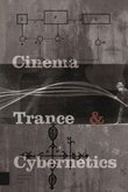Explore

Ute Holl explores cinema as a cultural technique of trance, unconsciously transforming everyday spatio-temporal perception. The archaeology of experimental and anthropological cinema leads into psycho-physiological laboratories of the 19th century. Through personal and systematic catenations, avant-garde filmmaking is closely linked to the emerging aesthetics of feedback in cybernetic models of the mind developed at the same time. Holl analyses three major fields of experimental and anthropological filmmaking: the Soviet avant-garde with Dziga Vertov and his background in Russian psycho-reflexology and theory of trance; Jean Rouch and his theory of cine-trance and the feed-back; and the New American Cinema with Maya Deren and Gregory Bateson conceptualising the organisation of time, space, movement and feedback trance in anthropological filmmaking.
This book is included in DOAB.
Why read this book? Have your say.
You must be logged in to comment.
